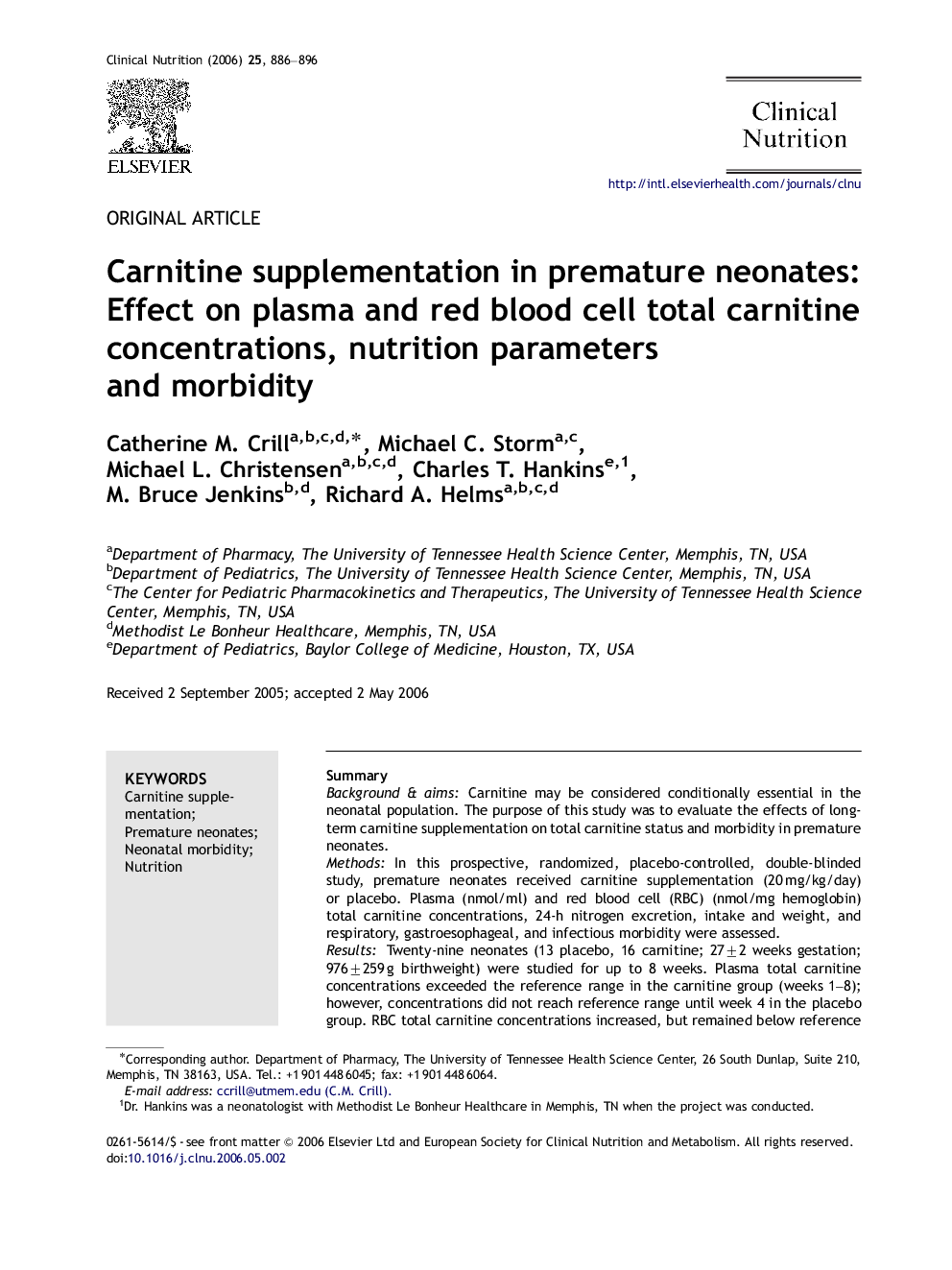| Article ID | Journal | Published Year | Pages | File Type |
|---|---|---|---|---|
| 2688668 | Clinical Nutrition | 2006 | 11 Pages |
SummaryBackground & aimsCarnitine may be considered conditionally essential in the neonatal population. The purpose of this study was to evaluate the effects of long-term carnitine supplementation on total carnitine status and morbidity in premature neonates.MethodsIn this prospective, randomized, placebo-controlled, double-blinded study, premature neonates received carnitine supplementation (20 mg/kg/day) or placebo. Plasma (nmol/ml) and red blood cell (RBC) (nmol/mg hemoglobin) total carnitine concentrations, 24-h nitrogen excretion, intake and weight, and respiratory, gastroesophageal, and infectious morbidity were assessed.ResultsTwenty-nine neonates (13 placebo, 16 carnitine; 27±2 weeks gestation; 976±259 g birthweight) were studied for up to 8 weeks. Plasma total carnitine concentrations exceeded the reference range in the carnitine group (weeks 1–8); however, concentrations did not reach reference range until week 4 in the placebo group. RBC total carnitine concentrations increased, but remained below reference range in both the carnitine (weeks 1–6) and placebo (weeks 1–8) groups. Carnitine group neonates regained their birthweight more rapidly than placebo group neonates (day of life 11.8±6 vs. 16.9±6.3, P=0.034P=0.034). In addition, percent periodic breathing calculated from cardiopulmonary trend monitor data (weeks 1–8) was lower in the carnitine group (0.4±0.9 vs. 1.4±1.9, P=0.014P=0.014). There was no difference with respect to other markers of respiratory, gastroesophageal and infectious morbidity or nitrogen balance.ConclusionsCarnitine supplementation at 20 mg/kg/day results in increased plasma and RBC total carnitine concentrations, has a positive effect on catch-up growth, and may improve periodic breathing in premature neonates.
